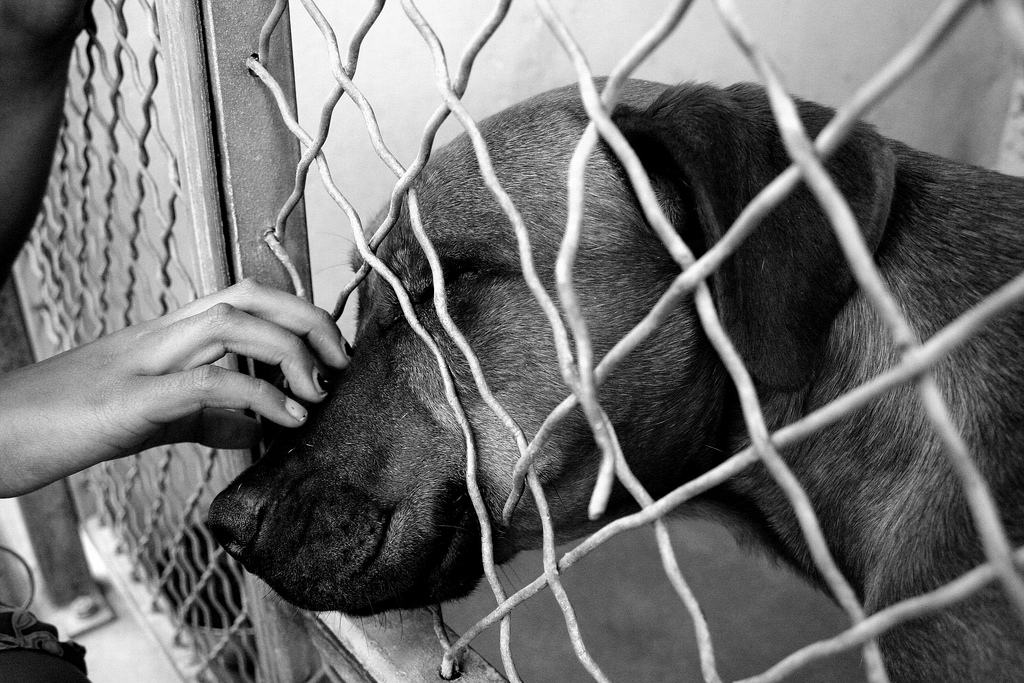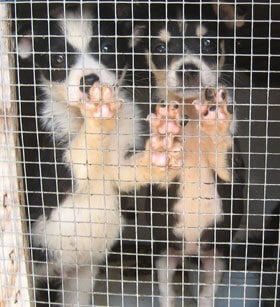At an unlicensed animal “rescue” facility in Iowa earlier this month, officials reportedly made a gruesome discovery: The remains of dogs, in various stages of decay, with their collars still on. Nineteen other, living dogs were rescued from properties associated with this “rescue”; many of them were underweight and had sores from being forced to live in their own waste. A dog who had been kept in a camper with other dogs had been severely injured in an apparent attack and was near death when officials arrived. One small dog’s fur was so severely matted that it took a groomer four hours to cut away nearly 5 pounds of mats. But if you think this is a rare case, think again.
Similar horrors are happening all over the country, as public animal shelters bend to relentless pressure to increase their “live release” rates by handing animals over to anyone who will take them. That’s what happened here.

Erick J Pleitez / CC by 2.0
Every single week now brings news of another self-proclaimed “rescue” being busted for keeping animals in criminally cruel conditions like unheated sheds; stacked in cages in basements; and chained up outside, deprived of sufficient food, clean water and even urgent veterinary care. Concerned citizens need to ask how many more animals will be forced to endure painful, lingering deaths at these unregulated facilities before shelters, animal control agencies and municipalities wake up and stop shuffling homeless animals around as if they were surplus merchandise.
Last month, a self-professed “rescuer” in North Carolina and her partner were charged with cruelty to animals and animal abandonment after they allegedly left 16 cats by the side of the road—some of whom were declawed, missing teeth and in need of medication. Fifteen of the cats had been given to the “rescuer” by the Cumberland County Animal Shelter. According to the shelter’s manager, the facility had released 79 cats to the woman in a matter of months and routinely asked her to take cats when the shelter was full. The manager said she had suspected that the “rescuer” was hoarding cats and even reported her concerns to state and county officials, yet she continued to call on the woman to take animals out of the shelter.
Animals depend on shelters to do their jobs. Protecting animals from abuse is one of their primary responsibilities, but many facilities are now handing animals over to abusers. This is a dereliction of duty.
In December, a longtime animal “rescuer” in Georgia was arrested and charged with felony cruelty to animals after authorities reportedly found starving animals on his property, which was being used as a “foster home” for a group called Friends of DeKalb Animals (FODA). The floors inside the home were saturated with dog urine and feces, and authorities removed about a dozen animals, including a potbellied pig with protruding ribs who was found in an outdoor pen with no real shelter. One dog was found dead, and others were emaciated, with their ribs and hip bones clearly visible through their skin. A spokesperson for FODA said that the group had not inspected the home.
Shelters that are more concerned about their “save rates” than the welfare of individual animals resort to all kinds of dangerous ways to avoid euthanasia, including refusing to accept even the animals who are most in need when they run out of room. But rejected animals don’t just magically disappear. They often meet a cruel, painful end, including being drowned, shot or abandoned to the streets to starve to death by citizens who can’t—or won’t—care for them. A slow, painful death is not preferable to a fast, painless one.
Shelters must stop treating animals as if they were numbers. All “rescues” need to be inspected, vetted and strictly regulated. And communities should work to end the need for euthanasia the right way—by preventing births through spaying and neutering.
By Teresa Chagrin
Teresa Chagrin is an animal care and control specialist in the Cruelty Investigations Department at People for the Ethical Treatment of Animals





